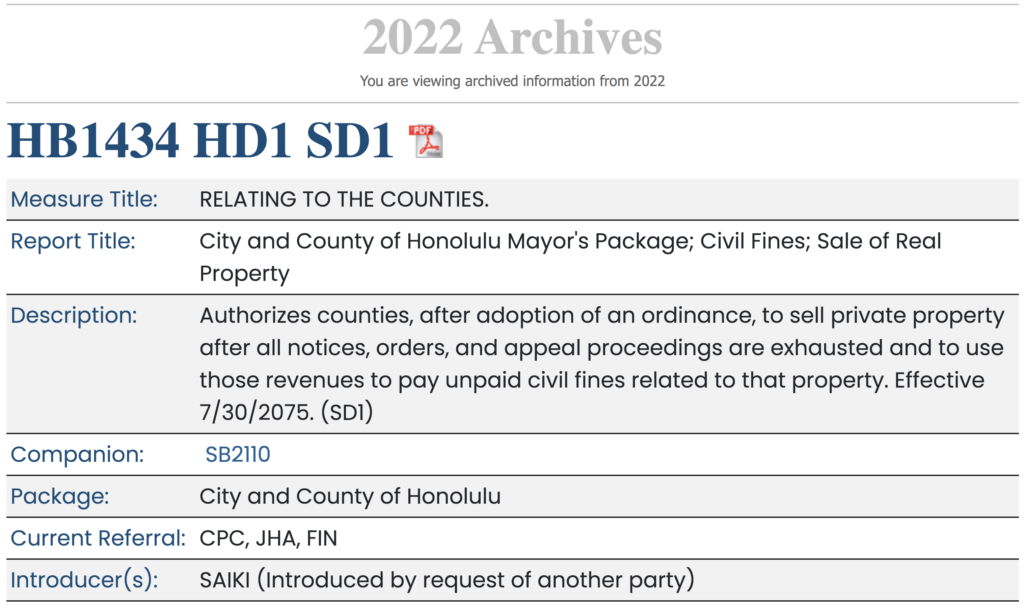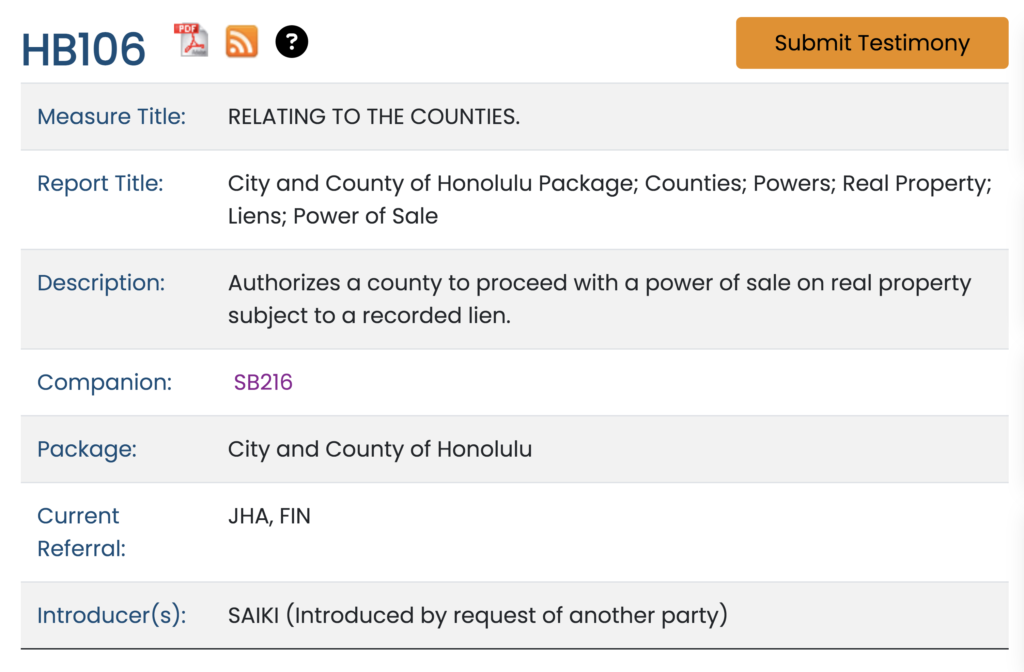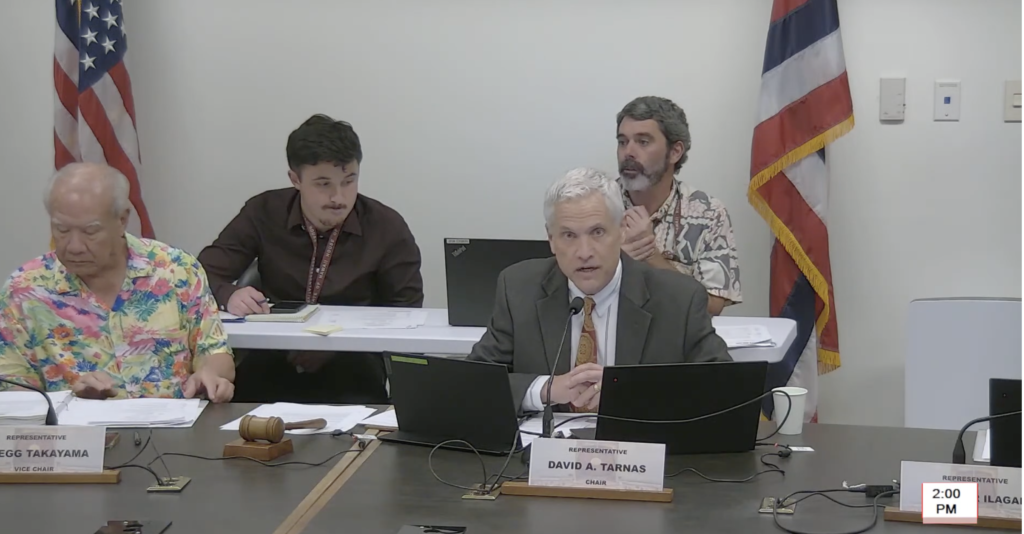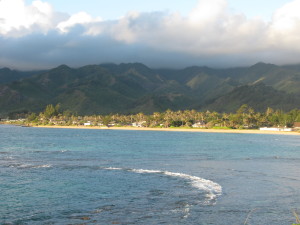This is a reprint from the Star Advertiser published February 15, 2023. The limit for Star Advertiser was 600 words. For educational purposes, we’re adding more info through links and photos.
EDITORIAL | ISLAND VOICES
Column: Bill threatens private property owners
- By Choon James and Natalie Iwasa
- Today
- Updated 7:19 pm
As part of the 2022 county package to state legislators, Honolulu Mayor Rick Blangiardi requested “nonjudicial foreclosure” powers, i.e., the power to seize private property without going to court. Fortunately, House Bill 1434 did not pass last year.

This year’s package includes another request for “nonjudicial foreclosure,” aka “power of sale.” 2023 HB 106 BELOW represents an alarming threat to property owners and is prevalent in totalitarian regimes.

This year’s HB 106 offers weak assurance that “a county may, after all notices, orders, and appeal proceedings are exhausted, satisfy all unpaid civil fines through the power of sale on the real property subject to a recorded lien.”
Unfortunately, our years of civic participation at Honolulu Hale show that due process has not always been fair and equitable to ordinary residents.
Furthermore, recent federal indictments and guilty pleas continue to show the troubled Honolulu Department of Planning and Permitting (DPP) has no consistent record of fair play or efficient management. Written testimonies reveal alarming threats toward private property rights.
Dawn Takeuchi Apana, DPP director designate, stated: “Specifically, this bill would authorize the city to bring closure to pending civil fines imposed on landowners who are in violation of the city’s land use ordinances and building codes, through a nonjudicial or administrative process.”
Honolulu City Councilman Calvin Say also submitted testimony for a quicker seizure: “Our city corporation counsel is currently able to initiate a Judicial Foreclosure process, which has been successful in similar instances, however this is a long process that takes valuable resources away from other pressing legal matters.”
In other words, give us the authorization to hurry it up by bypassing the regular court method of foreclosure.
The House Committee on Judiciary & Hawaiian Affairs, whose members include Chairman David Tarnas and Vice Chair Gregg Takayama, approved HB 106 on Jan. 31. Its report states in part:
“Your committee finds that authorizing the counties to collect on liens filed on properties through a nonjudicial foreclosure process provides some leverage over property owners to comply or lose their property. If a property owner fails to comply and the property is foreclosed upon, this measure would enable the property to be put to productive use, allow liens attached to the property to be satisfied, and stop the accrual of additional debt or taxes on the property.”

Hawaii’s state legislators should recognize that most ordinary residents sacrifice and work their tails off to achieve real property ownership. Each county’s goal should be to help property owners comply with the law and correct their violations, not summarily seize their properties.
HB 106 invites corruption and exposes residents, especially those who have fewer financial resources available to them, as easy casualties of this potential power of sale. All Hawaii counties would be affected.
It should be noted the U.S. Supreme Court ruled unanimously on Feb. 20, 2019 (Timbs vs Indiana), that the Constitution’s ban on excessive fines — civil asset forfeitures are a type of fine — applies to state and local governments, thus limiting their ability to use fines to raise revenue.
The late Justice Ruth Bader Ginsburg also astutely argued fines could be used to retaliate against political enemies and had been used as a source to raise revenue.

Hawaii has a few egregious property owners, but this tyrannical bill is not the solution. We urge our legislators to vote “no” on HB 106.
###
AUTHORS: Natalie Iwasa is a CPA and certified fraud examiner; Choon James is a residential Realtor and farmer. They have spent combined decades of civic participation at Honolulu Hale as community advocates for good governance.


